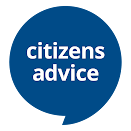Recovery and Young People
By Alex Guy
Young people born between 1990 and 2005 have already
experienced two major global shocks within the first 15-30 years of their life
– the financial crisis of 2007/08 and the Covid pandemic. Many organisations
have been trying to explain the importance of having a recovery plan that is
inclusive to all ages, especially the young people that will be dealing with a
multitude of aftershocks from this pandemic as they go into further education
or employment. One recovery plan suggestion by The Children’s Society includes
how grades will be viewed by further education organisations such as
universities, as well as additional mental health support for the age group.
Youth led organisations have been active in building recovery plans in
partnership with the government to ensure their inclusion. For example, the
British Youth Council is urging the government to create a Minister for Young
People to bring the voice of youth into policymaking. Moreover, half of mental
ill health starts by age 15, and 75% develops by age 18, which highlights the
vulnerability of this age group during a period when mental illness is high.
Before lockdown, suicide was the third leading cause of death in 15-19-year
olds, and with increased uncertainty, anxiety and fear, there may be worrying
increases in this number. Focus needs to be placed on youths as part of the
recovery plan for the Covid pandemic to ensure that they are not left behind,
that they continue to receive opportunities to improve their futures, and to
make sure that they are supported, especially surrounding mental health.
Support organisations:
Childline: Free, confidential advice for those up to 19
years old, call 0800 1111 to speak to an advisor.
Youthoria: Website run by Cambridgeshire Council for
11-19-year olds, advice from jobs, to education, to bullying:
http://www.youthoria.org/
Centre 33: Supporting young people up to the age of 25 with
mental health, caring responsibilities, housing, sexual health and more.
Telephone: 0333 4141809
Text/whatsapp: 07514 783745
Email: help@centre33.org.uk
For more information:
https://www.childrenssociety.org.uk/what-we-do/resources-and-publications/covid-19-recovery-briefing-children-and-young-peoples-mental
https://www.oecd.org/coronavirus/policy-responses/youth-and-covid-19-response-recovery-and-resilience-c40e61c6/#section-d1e1472
MHFA England:
https://mhfaengland.org/mhfa-centre/research-and-evaluation/mental-health-statistics/
https://www.who.int/news-room/fact-sheets/detail/adolescent-mental-health




